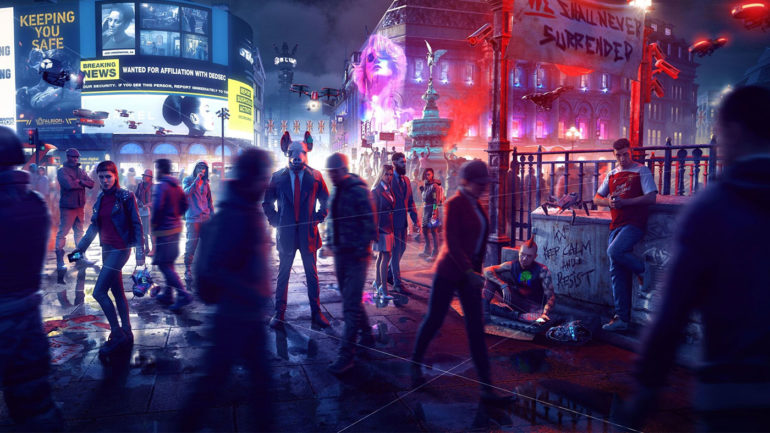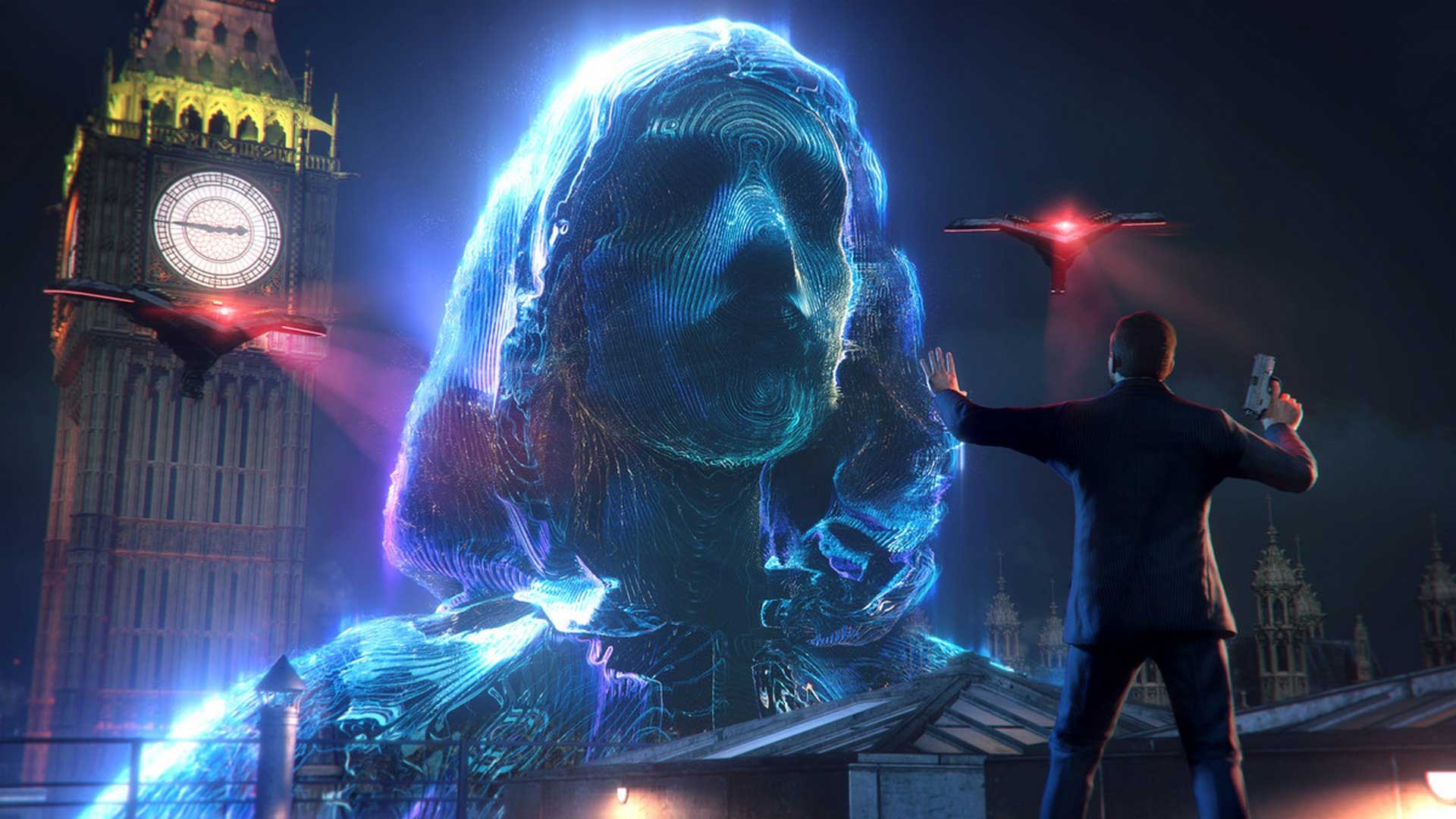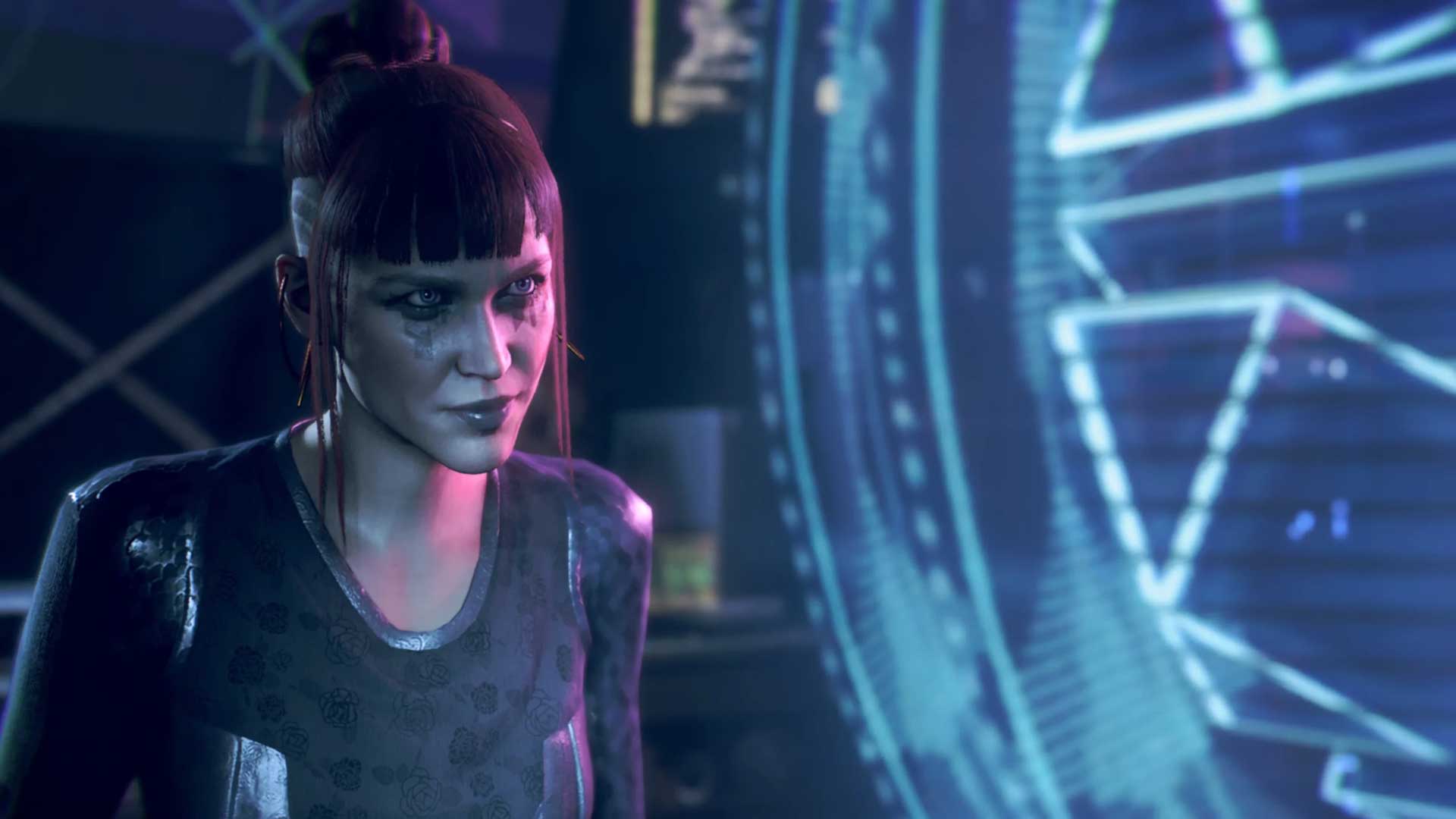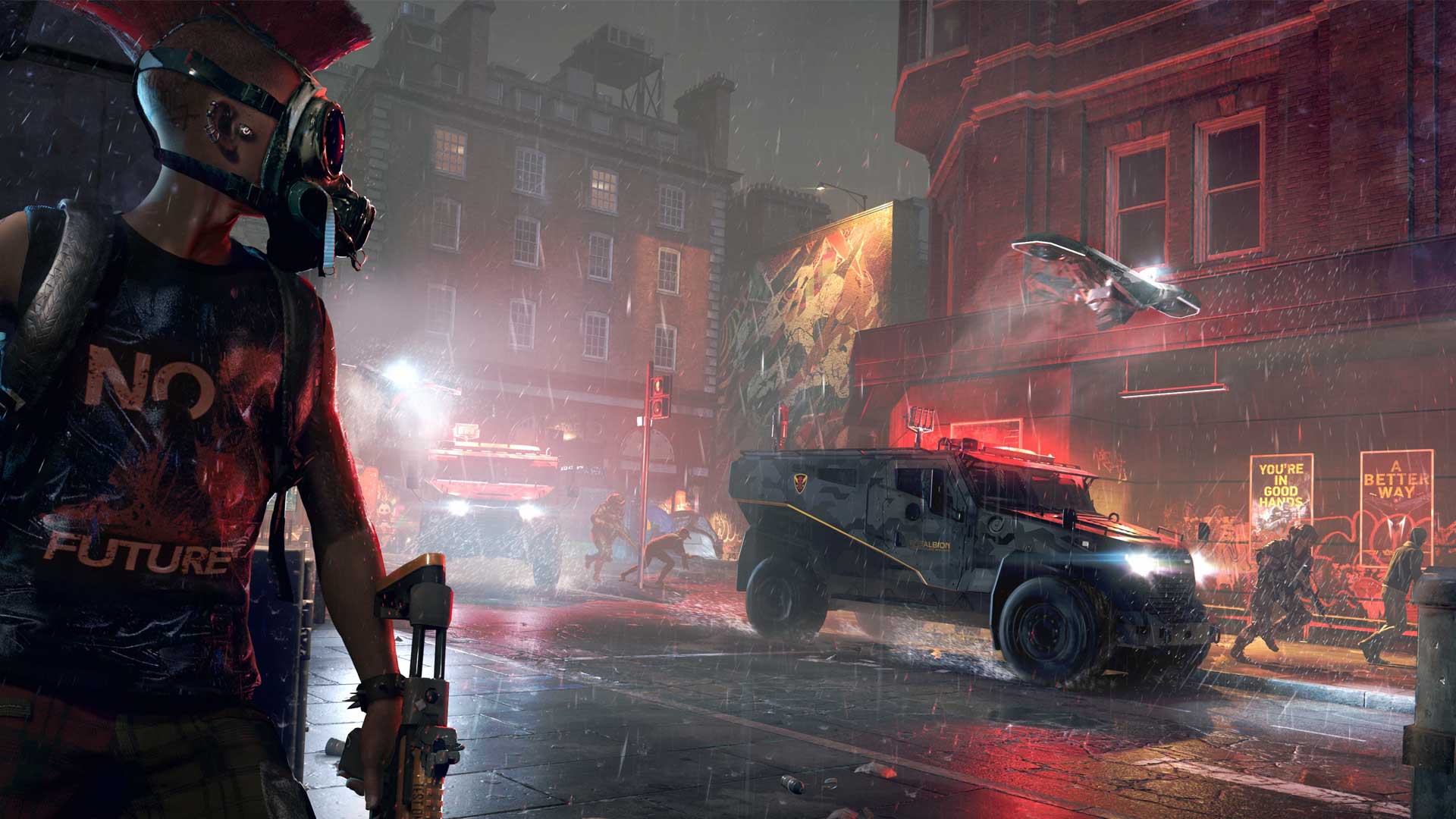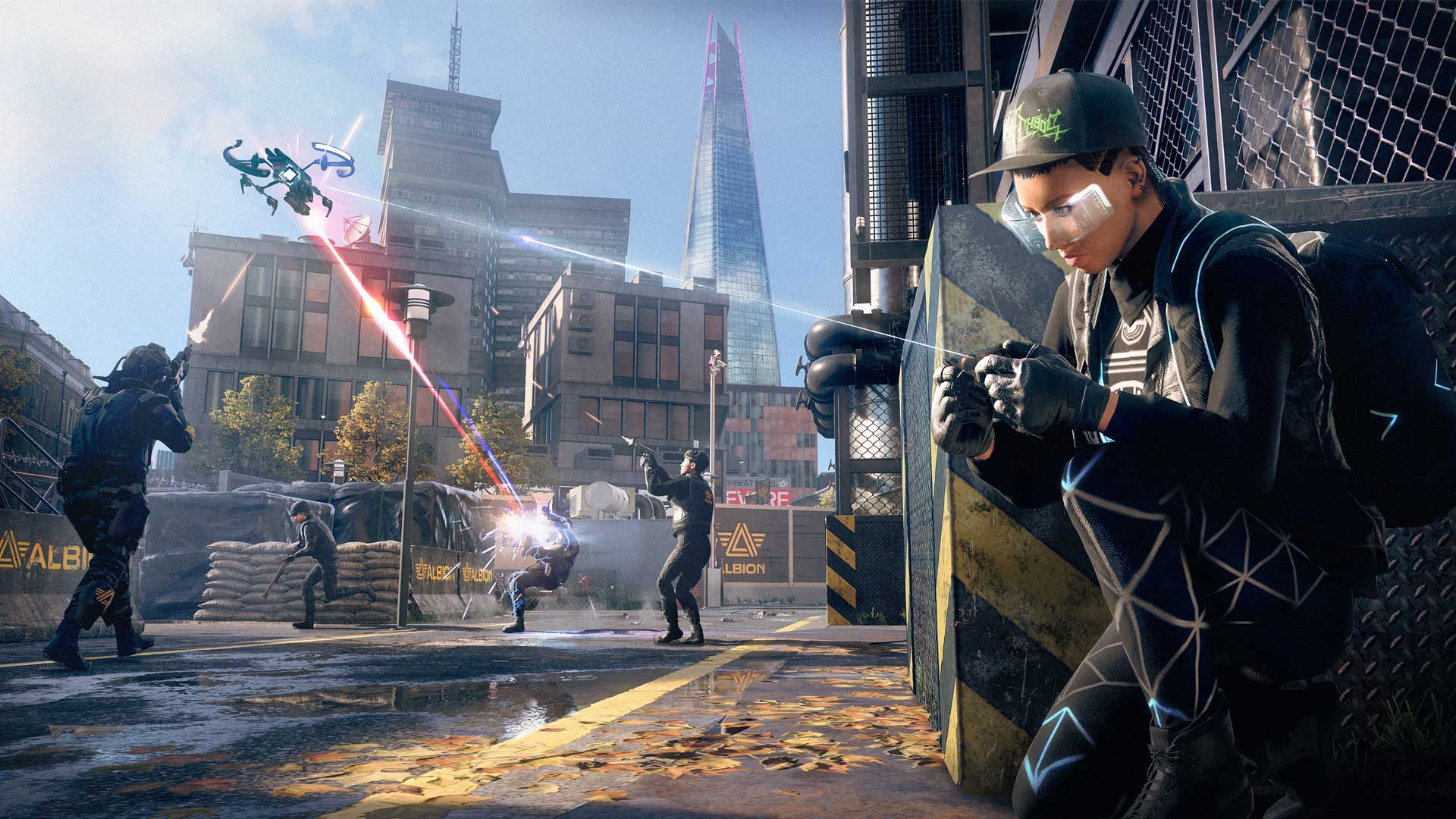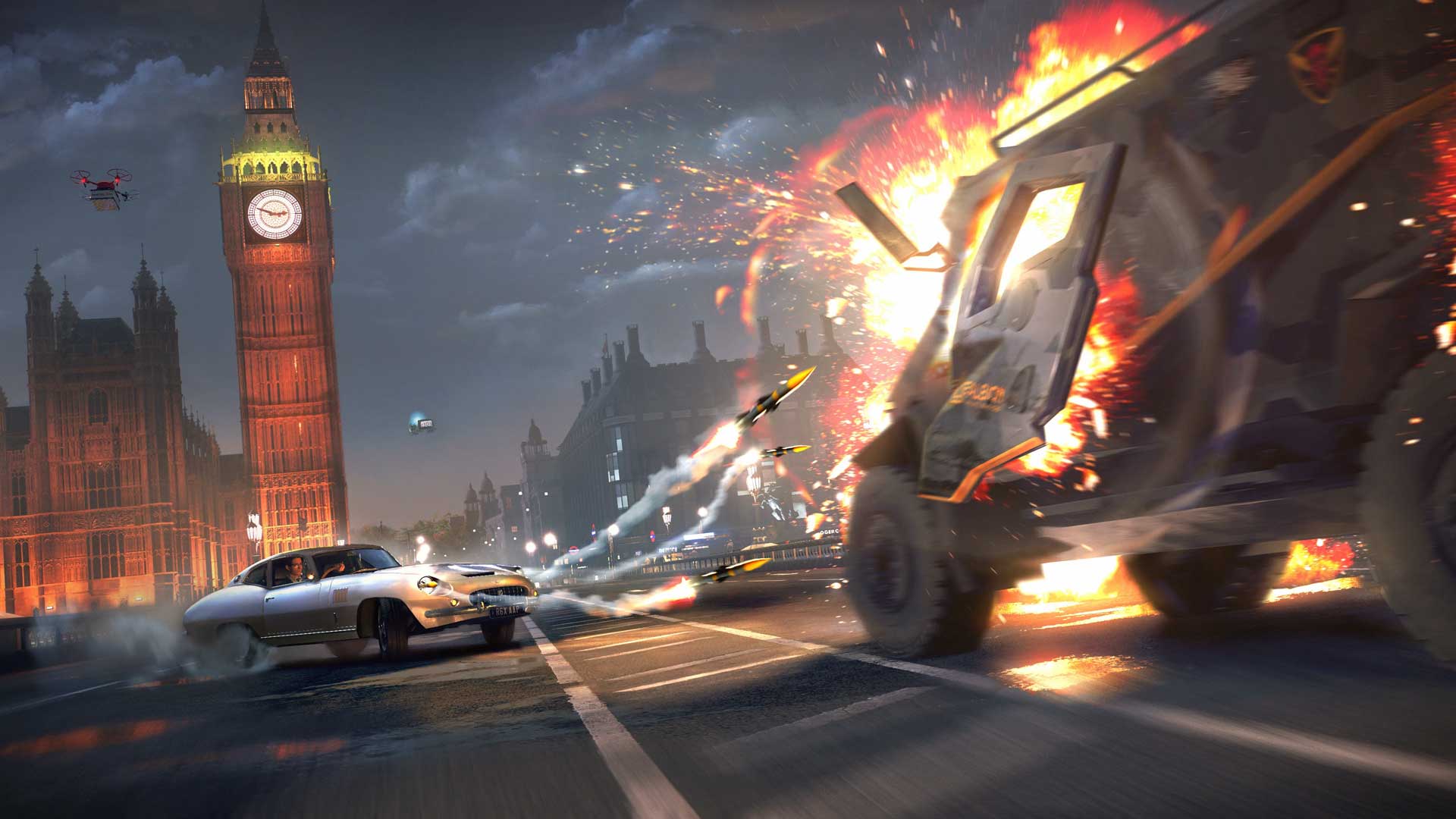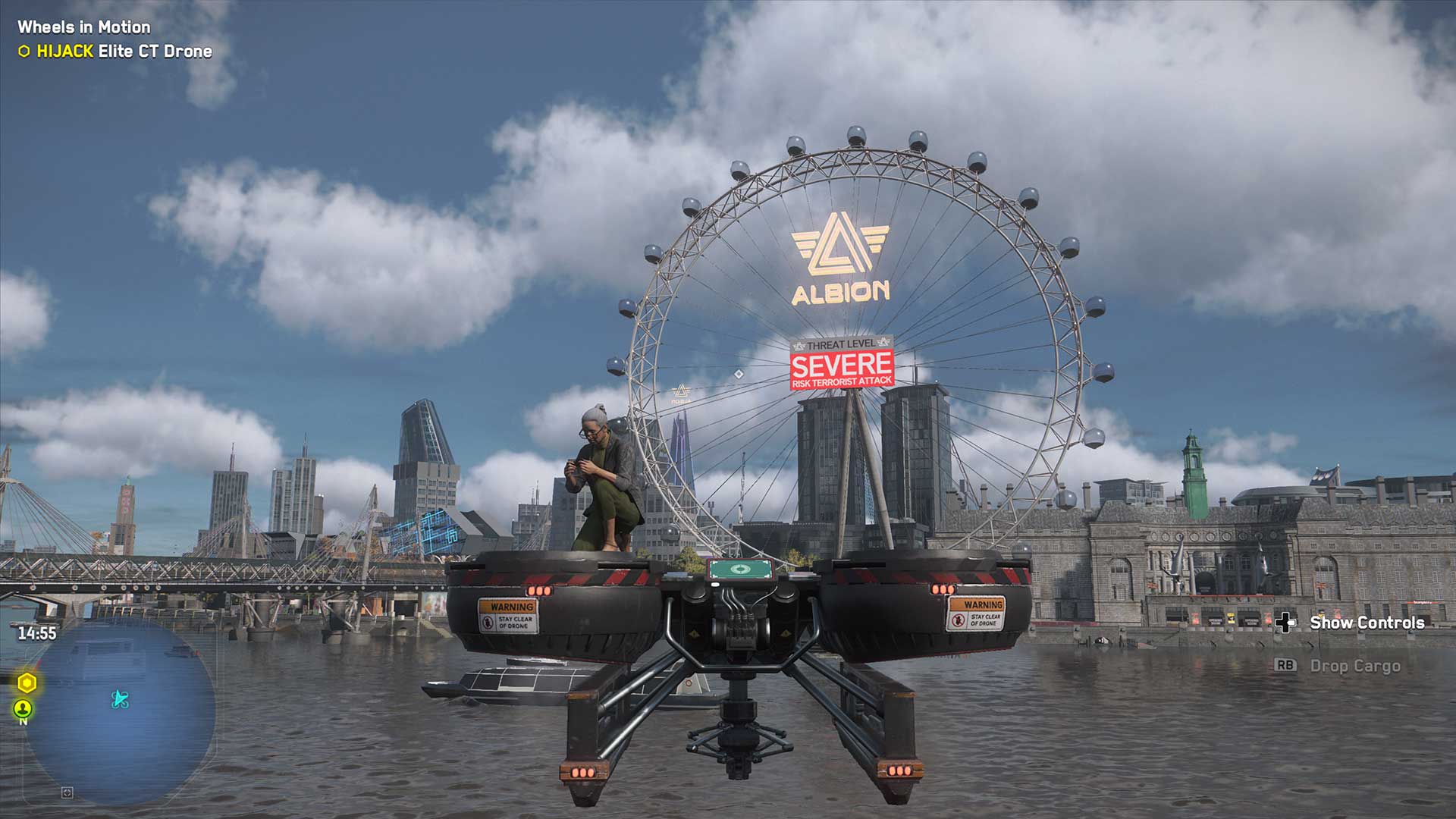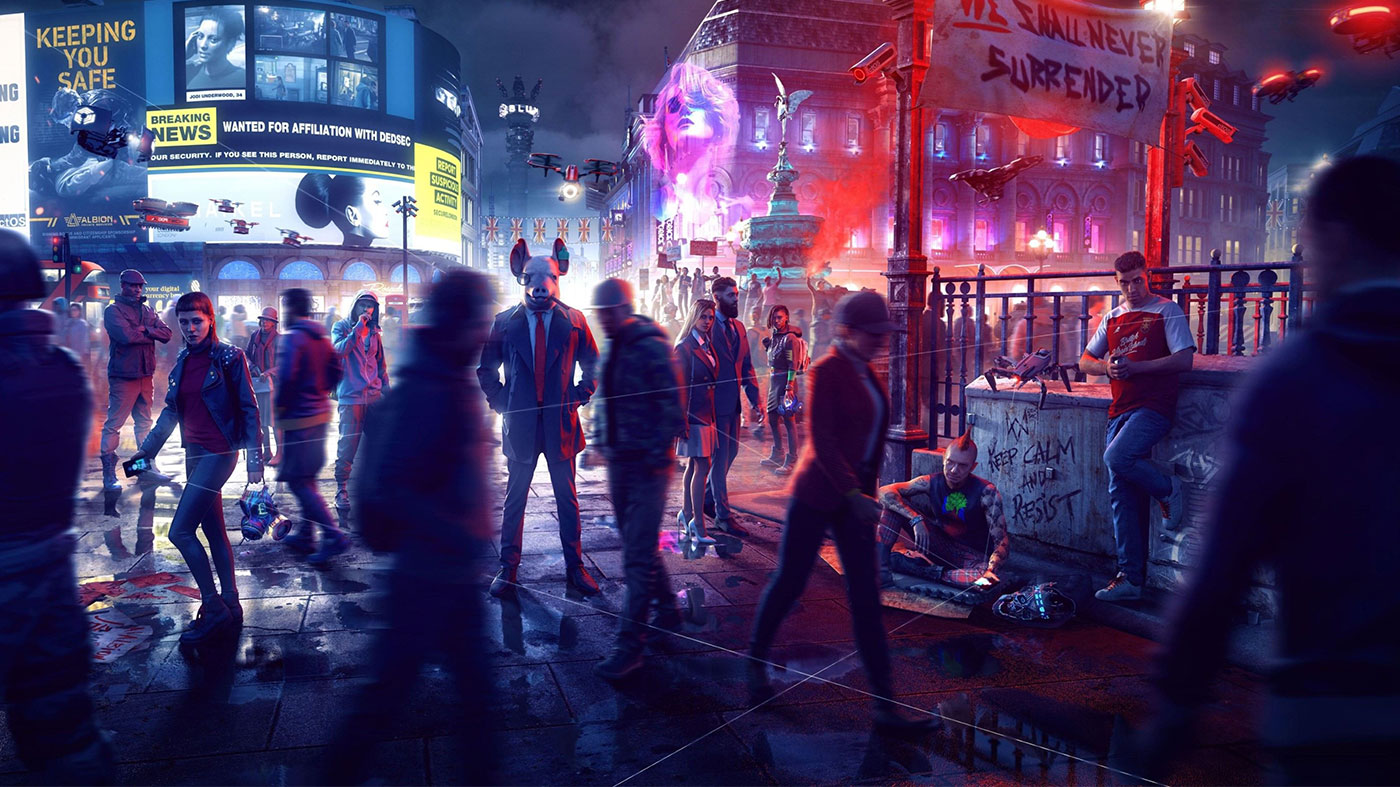Press Start may receive a commission when you buy from links on our site at no extra cost to you.
With the advent of Assassin’s Creed Origin, I was a little bit worried that Ubisoft might try to make Watch Dogs into another lite RPG. While the series hasn’t had eleven games to experiment with its formula, Watch Dogs, as a series, felt pretty feature-complete with the release of Watch Dogs 2 a mere four years ago. Watch Dogs: Legion throws out everything that didn’t work with the first two games and delivers an experience with an ambitious twist—albeit to varying results.
Watch Dogs: Legion takes place in near-future London, following its controversial exit from the European Union. The propagation of technology throughout society has led to economic collapse with the workforce being wiped out and most jobs becoming automated. In the chaos of this bleak and depressing future, several key private figures slowly usurp and become more powerful than local government. Legion opens with a terrorist attack on London and sees hacking collective DedSec framed for it. A relatively new movement in London, the group mobilises and begins recruiting to take the city back.
RELATED: SIX TIPS TO RISE UP FOR LONDON IN WATCH DOGS: LEGION.
Legion represents the first time that I’ve been invested in the story and most of its characters from beginning to end. Perfectly teetering on the edge of fantasy and reality, perhaps the scariest thing about Legion is just how believable it is despite its outlandishness. Make no mistakes, it’s definitely concepts you’ve seen before: consequences of technological overreliance, misuse of technology by those in power, and even transhumanism.
But hanging over Legion’s head is an issue I had trepidation about when it was first announced. Legion has no main character. I understand the concept artistically, to highlight the importance of everyone in the role of revolution. But Legion’s need to have every character voiced with dialogue and reactions creates issues with the plot. For one, the supporting cast tends to talk around your character rather than directly to them. Sometimes, this can feel natural while other times it’s clear the lines weren’t as well fitted, and some interactions can come across as awkward and flat.
It’s disappointing, of course, given the strength of Marcus and his crew in Watch Dogs 2, of whom all have been thrown away now. In their place is a supporting cast that exists purely to exposit when your own character can’t. Bagley assumes this role the most, a Wheatley-type A.I. who does most of the talking in Legion and delivers most of the exposition. The villains are similarly all engaging, but the most interesting ones are relegated to the least screen time. There’s even a huge choice to make at the end of their particular arc — which is bizarrely the only choice in the entire game you have to make — that isn’t ever revisited throughout the game.
Looking at it purely from a design perspective, Legion choosing to make every NPC playable is ambitious. While I do miss playing as a fully decked out Aiden or Marcus, having to correctly assemble a diverse team based on their ability adds a whole layer to the proceedings. Every character you encounter in Watch Dogs: Legion has specific attributes or traits for themselves or that buff your entire team. It’s simple but feels like a natural evolution on the main gimmick that the original Watch Dogs sold itself on.
There are heaps of attributes here that, while procedurally generated, come together to make every character feel unique. Some offer lower cooldowns for hacking abilities. Others provide greater melee damage. Some give you immunity to tear gas. There are probably hundreds, and it’s fun to look through the denizens of London and try to handpick the best ones for your team and to join DedSec.
Similar to the Middle-earth games, each character has a relationship with DedSec, which in turn affects how easily they’ll join your cause. Some will join you after completing a recruitment mission. Others will be a little bit harder to woo and require a bit more work.
So let’s share an anecdote. During my time with Legion, I had my eye on a security guard with excellent skills. Eventually, I accidentally knocked her out during battle — Legion’s weapons are mostly non-lethal by default — but came across her in three separate battles later. Understandably, when I put the time aside to recruit her, she wasn’t interested at all. But after studying her schedule and helping her complete a case by eliminating someone she was investigating, she came around.
It sounds simple, but it’s another layer to the world that many open-world games never really stop to consider implementing. Of course, recruitment missions are also randomly generated, but they’re retrieved from a pool so deep it’s hard to notice the usual caveats that come with procedurally generated content.
But don’t worry — there are still “unique” characters that every player will come across and be able to recruit if you can’t be bothered headhunting through London. The beekeeper is probably the most well known of these, but the James Bond-like spy and professional hitman were some of my own favourites. The former has a silenced weapon and a missile-equipped car, while the latter has unique takedown animations and is a generally better in-your-face fighter.
The moment-to-moment gameplay remains as strong as ever in Legion, too. However, the game simplifies and streamlines a lot of the systems in Watch Dogs 2. The result feels dramatically different from its predecessor but somehow still offers just as much depth. Dipping a little bit into the immersive sim genre, if you can think of doing it with the tools you’re given, then you can pretty much pull it off in Legion. The game feels a lot freer in that regard, and while the obvious solutions are always there, I enjoyed thinking outside of the box and having it actually work.
The changes from Watch Dogs 2 are numerous, though progression feels like the most significant adjustment. Instead of having a sprawling skill tree, Legion lets you upgrade skills and gadgets from a pool of 24, which then carries across to all your operatives. It’s a much more approachable way of handling progression, and relegating these upgrades to gadgets means you can customise any of your operatives to complement their already ingrained traits and attributes. Yes, it’s ostensibly simpler than Watch Dogs 2, but it works better to remove the bloat from progression that so many open-world games lose themselves in.
The commitment to painting a picture of a dystopian London is especially evident in the score, one of Ubisoft’s best. Composer Stephen Barton, of Modern Warfare fame, does a great job of pulling together sounds from the many genres that the UK is perhaps best known for. Be it some transporting trip-hop, smooth electronica, or jagged grime and garage, the original score for Watch Dogs Legion is fantastic and sells the mood oh-so-well.
There’s a nice arrangement of licensed music too — including a memorable use of The Prodigy in one scene — and other acts such as Fatboy Slim, Foals, The Chemical Brothers, Gorillaz, Bring Me The Horizon, and Lily Allen all make appearances. It’s a great and eclectic mix of the best of Britain.
There’s not as much consistency in the voice work, though, which is all over the place. Pascal Langdale, who voices Bagley, does a great job of bringing fun to the whole experience with a witty and dry delivery. Others, such as whoever is playing Sabine, sleepwalk through the script, and rarely inspire their character’s morale. The voicework for everyone else is very hit and miss. Some of them are so exaggerated to the point they borderline on cartoonish. Mary Kelley, one of the villains, tries her best to be threatening but comes across a cockney Catherine Marlowe instead.
Visually, the game looks fantastic, bringing many famous landmarks and boroughs of London to life. Although there are times when it could have been a bit more colourful, the cynic in me continually had to remind myself that well, this is London. But perhaps more importantly, despite Legion running great at 30fps, it serves as a poignant reminder that next-gen is just around the corner. You can expect five to ten seconds of load times between mission areas in Legion. Sometimes, my initial load would even spill over into the minutes. Obviously, this should definitely be improved with the next-gen consoles.


